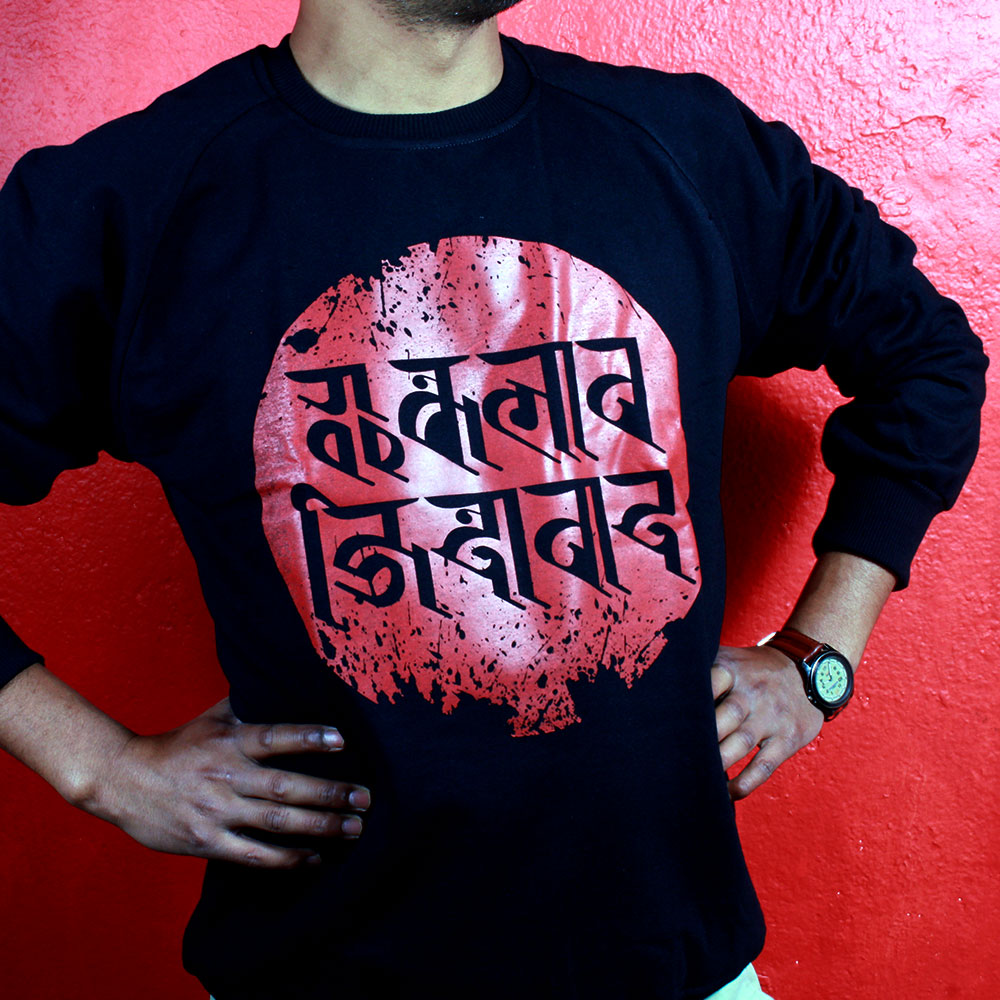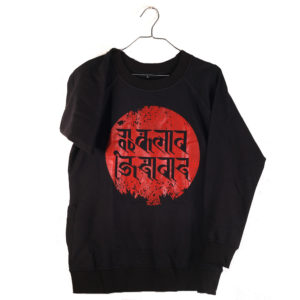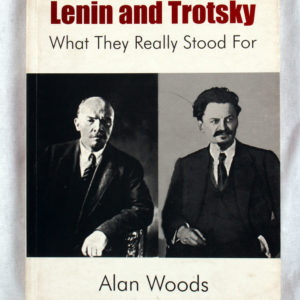Inquilab Zindabaad इन्कलाब जिन्दावाद Sweatshirt
₨ 1,400.00
This sweatshirt is designed for all the activist, revolutionary, and leaders who are fighting their own battle to win the revolution. The vintage design reads “Long Live the Revolution – इन्कलाब जिन्दावाद” in Ranjana Lipi.
Material : Cotton
Sizes Available : S, M, L, XL
Tshirt Color : Black
Print Color : Blood Red
- Categories: Alternative Fashion, Sweatshirts
- Tags: alternative fashion, Leftshop, leftshopnepal, red wears, revolutionary wears, sweatshirt
Related products
This Ideas Of Lenin And Trotsky Are Without Doubt The Most Distorted And Slandered In Histoy. For More Than Eighty Years, They Have Been Subjected To An Onslaught From The Apolgists Of Capitalism, Who Have Attempted To Present Their Ideas – Bolshevism – As Both Totalitarian An Utopian. An Entire Industry Was Developed In An Attempt To Equate The Crimes Of Stalinism With The Regime Of Workers’ Democracy That Existed Under Lenin And Trotsky.
Authors : Alan Woods, Ted Grant
Publisher : Aakar Publications
‘Editors K. Satyanarayana and Susie Tharu have drawn from their previous experience editing anthologies of Dalit writing from south India to collate poetry, essays, memoir and fiction into an immersive experience of Dalit literature as both aesthetic and socio-political identity.’— LiveMint
Read an excerpt published in the Hindustan Times.
‘Angela Davis swings a wrecking ball into the racist and sexist underpinnings of the American prison system’—Cynthia McKinney, former Congresswoman, US.
Davis’ central point is worth studying and bringing to the foreground in the prison reform movement. She argues that prisons do not solve crime. Within the last two decades the prison boom simply has intensified the criminalization of certain types of behavior, rather than having brought official crime rates down.—http://www.politicalaffairs.net
Purple Hibiscus is set in postcolonial Nigeria, a country beset by political instability and economic difficulties. The central character is Kambili Achike, aged fifteen for much of the period covered by the book, a member of a wealthy family dominated by her devoutly Catholic father, Eugene. Eugene is both a religious zealot and a violent figure in the Achike household, subjecting his wife Beatrice, Kambili herself, and her brother Jaja to beatings and psychological cruelty.
The story is told through Kambili’s eyes and is essentially about the disintegration of her family unit and her struggle to grow to maturity. A key period is the time Kambili and her brother spend at the house of her father’s sister, Ifeoma, and her three children. This household offers a marked contrast to what Kambili and Jaja are used to. It practices a completely different form of Catholicism, making for a happy, liberal place that encourages its members to speak their minds. In this nurturing environment, both Kambili and Jaja become more open and more able to voice their own opinions. While at Aunty Ifeoma’s, Kambili also falls in love with a young priest, Father Amadi, which awakens her sense of her own sexuality.
Purple Hibiscus is an exquisite novel about the emotional turmoil of adolescence, the powerful bonds of family, and the bright promise of freedom.








Reviews
There are no reviews yet.